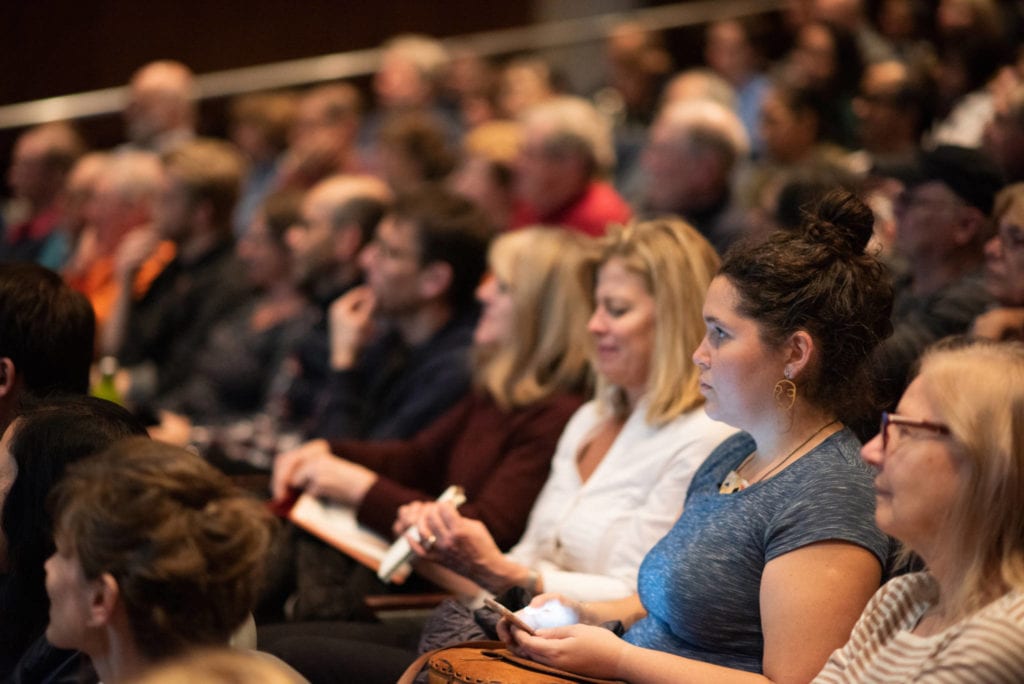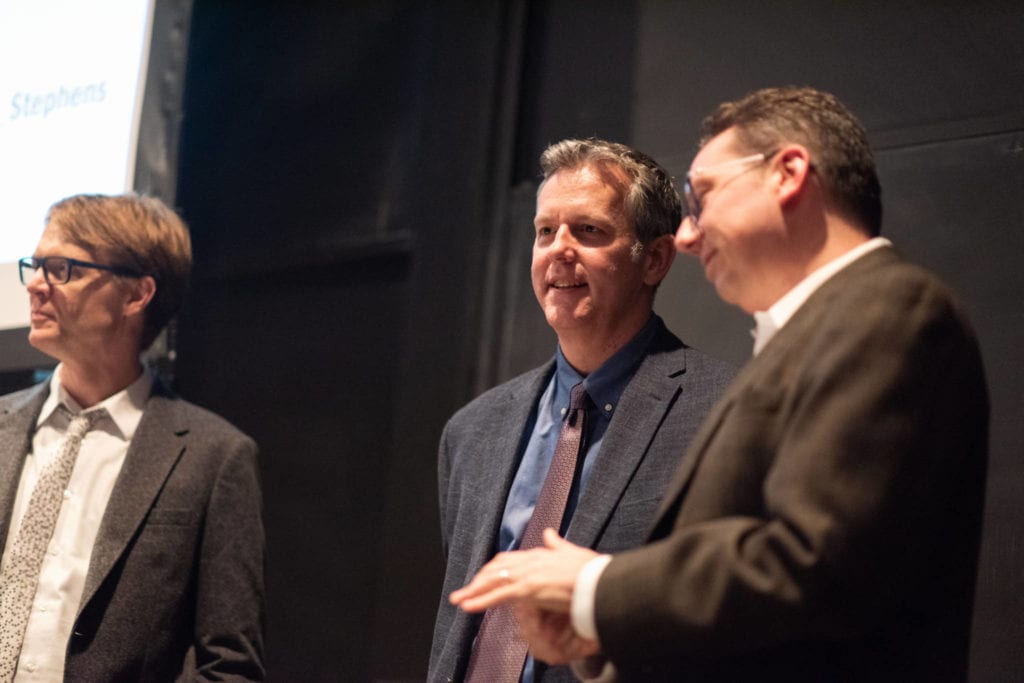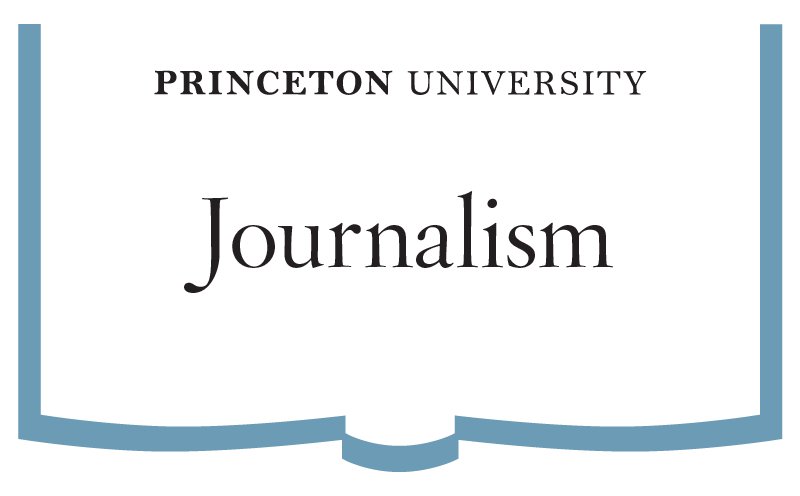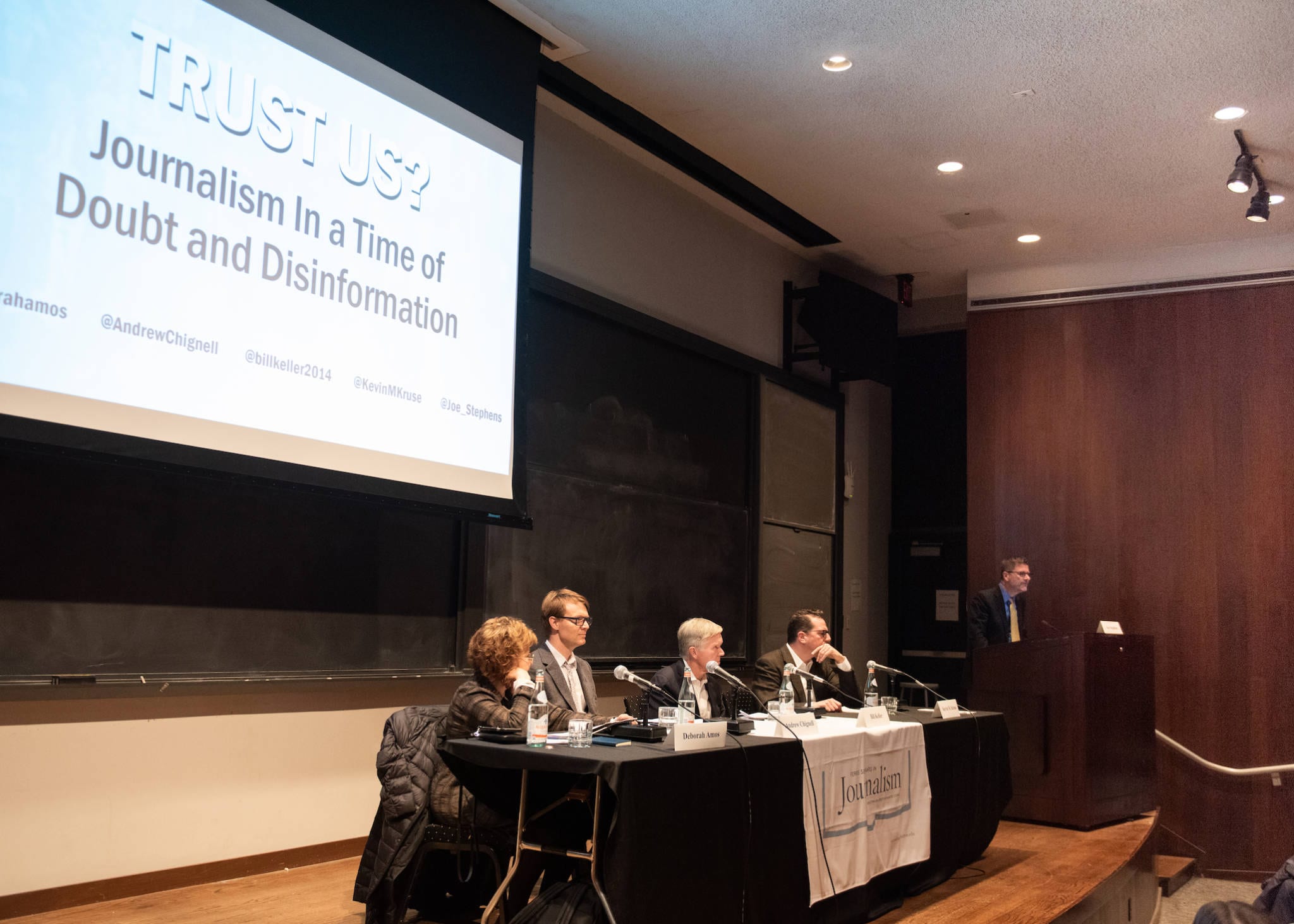Watch the full discussion here.
“Trust Us? Journalism In a Time of Doubt and Disinformation,” a panel discussion hosted by the Program in Journalism, brought a packed audience of journalists, scholars, members of the University, and people from the surrounding community into McCormick 101 on Monday, Nov. 11.
The discussion concerned one of the most critical issues of our age: how we can deliver verifiable facts to citizens to keep our democracy healthy, said moderator Joe Stephens, Ferris Professor of Journalism in Residence and director of the Program in Journalism.

After years of decline, 2014 marked the first time that the majority of Americans reported distrusting the media. “Today virtually every institution is trusted more than the news media. The only institution that consistently polls lower than the news media is Congress,” Stephens said. He called the development stunning, since the press seeks to inform the public.
Kevin M. Kruse, Professor of History, warned that the proliferation of so-called “alternative facts” represents the biggest challenge to consumers of media now.
Mainstream media receives criticism from one longstanding conservative perspective, which he described as twofold: First, the media discriminates against conservatives. Second, and therefore, conservatives justifiably turn to their own alternative.
Kruse linked this attitude to decades past. Launching in 1996, Fox News first advertised itself as impartial, then distinguished itself from other outlets by declaring a bias. Defenders of the approach said that Fox News showed integrity in disclosing the bias that all media must have, Kruse explained.
Although Americans distrust the media, they may trust specific outlets like The New York Times or Fox News, noted Bill Keller, visiting McGraw Professor of Writing, former executive editor of The New York Times, and founding editor-in-chief of The Marshall Project. He likened the case to that of Americans distrusting Congress but still voting for their incumbents again and again.
“The best antidote to bad journalism is good journalism,” Keller said. He advocated for investigative reporting, which he characterized as expensive, time-consuming, and dependent on institutional support in the form of travel budgets, lawyers, data analysts, and fact checkers. Shifting away from quantitative toward qualitative political reporting would help, revealing what the electorate would not necessarily tell a pollster, he added.
Citizens should subscribe to news outlets, since top journalism costs a few bucks, Keller said. He noted that a liberal arts education teaches the critical skills and the respect for evidence needed to keep the news in check.
Andrew Chignell, Laurance S. Rockefeller Professor in Religion, Philosophy, and the University Center for Human Values, distinguished between trusting in a person and trusting in an object. When we trust in an object that proves unreliable, we feel disappointed. But when we trust in a person who proves unreliable, we feel betrayed. Chignell said he wondered whether betrayal or disappointment better captured how citizens react to misinformation from the media.
According to philosophers, he continued, one counts as trustworthy with regard to some end by possessing two features: one can successfully achieve the end, and one is committed to the end. However, he noted that experts dispute whether one must have a certain motive, like care for the good of the trustor as opposed to self-interest.

Deborah Amos, Ferris Professor of Journalism in Residence and international correspondent for NPR News, said that fairness requires journalists to always present the other side’s perspective. She added that a new phrase has come into vogue: “Transparency is the new objectivity.” The expression means that readers should have enough information to reconstruct how reporters reached their conclusions.
Instead of cocooning themselves, Americans could learn from how Iraqis handle distrust of the media, Amos said. She explained that Iraqis view five to seven sources per day to glean the actual story from whatever is and is not reported. “When it’s a matter of life or death, you make the time,” she noted.
Humanities Council Chair Eric Gregory introduced the panel. The event was co-sponsored by the Woodrow Wilson School of Public and International Affairs, and by the Department of Sociology.













